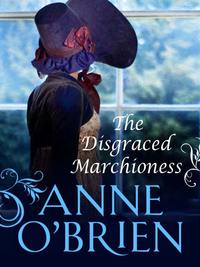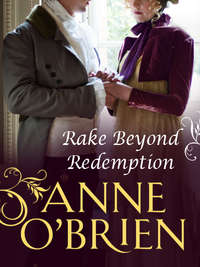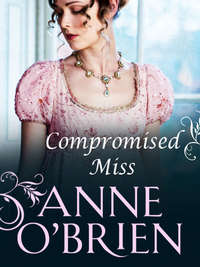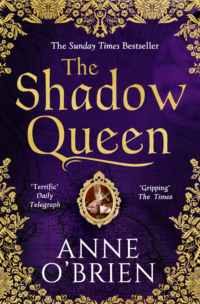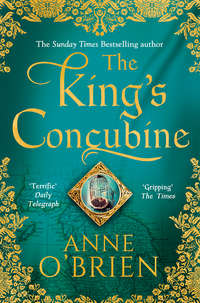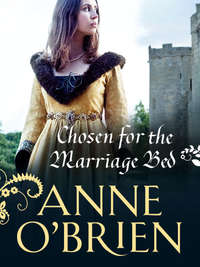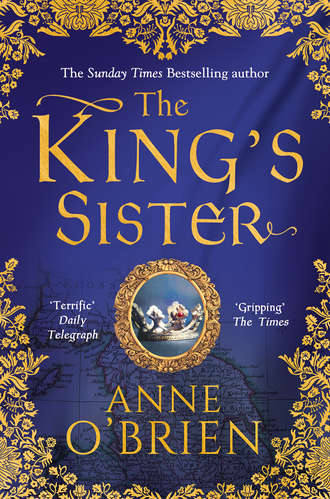
Полная версия
The King's Sister
‘Where do I begin? All is not good for England. Where are the noble victories of the past? The glories of Crécy and Poitiers? We flounder in defeat after defeat, yet the tax is high to pay for it. The Poll Tax is heavy on the peasants while the law holds down their wages. Do they blame my son the King? How can they? He is too young to blame. They need a scapegoat, and who better than Lancaster who stands at the King’s side and orders his affairs? They pile their grievances on his head. He has already proved he is not the war leader his brother was.’ Momentarily her eyes softened at the memory of the military exploits of Prince Edward, her much lamented late husband, but only momentarily. Once again they were fiercely focused on me. ‘The rebels last year would have had your father’s blood. As for Lancaster’s heir—they’d have strung your brother up from the nearest tree as soon as look at him.’
‘I know this. We all lived through the horrors. But surely all is well again. My father made reparation.’
Surprising me, the Princess reached with her free hand, fingers honey-smeared, to touch my arm.
‘He did, and should be honoured for it.’
A terrible reparation it had been. Accepting God’s punishment for his immorality as the cause of England’s troubles, my father had made a public confession, ending with a rejection of Dame Katherine, banishing her from his life. It had filled the household with grief. It had, I suspected, broken my father’s heart. It had certainly destroyed Dame Katherine’s reputation since Walsingham saw fit to damn her as whore and witch. Such an admission to make, such a wrenching apart of their relationship, to restore peace and confidence to Richard’s tottering government, but the Duke had done it because duty to the Crown and his nephew demanded it.
‘But all is not well,’ Princess Joan continued, dusting her fingers before returning to her sweetmeats. ‘On the surface you father is restored to favour, the rebels put down, but there are those who still resent his power as my son’s counsellor. There are too many with their eyes open for any excuse to attack and remove him from Richard’s side. Don’t give anyone a weapon to use against him, Elizabeth.’
This reading of court politics clutched at my belly, for I had seen no dangerous undercurrents. But what possible effect would it have on the direction of my life?
‘I do not see, my lady, that my speaking with your son would give anyone ammunition against my father,’ I said.
‘Perhaps not. But it’s good policy to be discreet and circumspect. Lancaster needs no divisions with the Pembroke faction if you appear less than a loyal wife.’ She squeezed my arm again with sticky emphasis, and some residue of humour. ‘I’ll not say don’t enjoy yourself but it would be advantageous for you to keep my warnings in mind. Richard is growing fast to maturity. How long will he need his ageing uncles at his side, chastising and advising and pushing him in directions he does not wish to go? He’ll want to be rid of them. He’ll listen to any man who sows seeds of defection. Don’t give anyone a reason to awaken old scandals. Your reputation must be whiter than the feathers on a dove’s breast.’
Her reference was clear enough.
‘I know,’ I said, looking away to hide the sadness that those probing eyes might detect. ‘I miss Dame Katherine.’
‘So do I. Witch she might be, to seduce Lancaster—though I doubt he needed much seducing—but she has always struck me as a woman of uncommonly good sense. And without doubt Lancaster loved her.’ The Princess finished the wine, her homily at an end. ‘And now we’ve covered all the political goings-on at my son’s court, it’s time I met the bride. Braid my hair, Elizabeth.’
Standing, I applied the comb to hair now almost entirely grey but which once must have added to her considerable beauty. Once more in its confining roll, she inspected the effect in her looking glass, grimaced, but nodded.
‘It’s the best that can be done. In my time I had every man at court at my feet, but now …’ She struggled with my help to stand. ‘Take me to her and I’ll see what I make of this Anne of Bohemia. Will I like her?’
‘Yes, my lady.’ I let her rest her hand on my arm as we walked slowly through the audience chambers.
‘Will she prove to be a solid influence on my son?’
‘I think she will.’ I wondered if her suspicions of Richard’s waywardness were as lively as mine, but could not ask. ‘He has great affection for her,’ I said.
‘Then let us give thanks to Our Lady. May be she can achieve where we cannot.’
How I admired this woman who walked haltingly at my side, her fingers digging into my arm. So deeply in touch with events and movements she was, despite living in some seclusion at Wallingford. Princess Joan might appear indolent and pleasure-loving, but she was impressively well informed. Her discourse had appealed to my intellect as well as my pride. I would never allow myself to be ignorant again of matters that might harm the Lancaster household. I was grateful to her.
‘Thank you, my lady,’ I said.
‘There!’ she replied with a malicious little glint in her eye. ‘I knew you would be useful to me. I have a high regard for your father. You can be my eyes and ears. Mine are beginning to suffer from advanced age.’
Taken aback, I slid a glance.
‘When I am gone, who will put their strength behind your father? And when your brother becomes Duke in the fullness of time, who will stand beside him? I see dark clouds looming, storms and tempests the like of which we have never seen before. We women have a role to play. Family loyalty must not be taken for granted. A woman must foster it as she raises her children and stitches her altar cloths. You must foster it, Elizabeth, for my days are numbered. Men wield their swords, but women have the gift of careful listening at keyholes. And of persuasion when brute force fails.’ Upon which she halted, clamping a hand in my sleeve, and regarded me even more sternly. ‘I put this burden on you. Are you listening?’
‘Yes, my lady.’
A frisson of interest, or was it disbelief, gripped me. What was she asking? Never had I been called upon to shoulder so weighty a mission, but of course I would obey. Was not my family the most important part of my life? Without question I would be Princess Joan’s eyes and ears, open to any whisper of danger or attack against Lancaster. I would remain constant and steadfast all my days. And then, on a thought:
‘Why did you not ask my sister?’
‘Your sister will believe the best of everyone. She’s no use to me. Now you, Elizabeth, are cut from quite a different bolt of cloth.’
Which made me laugh. ‘I hope I am able to live up to your expectations, my lady. But I will certainly pray for this new marriage.’
‘I know you will. And I know that you will prove yourself a magnificent supporter of Lancaster.’ We began to move again, the Princess labouring a little but still as incisive as ever. ‘But remember what I say. Don’t smile too overtly or too kindly on my son.’
‘No, my lady. I will not.’
‘I wish I could believe you,’ she remarked with dry appreciation as we at last entered the royal presence. ‘I have my doubts. My son has proved himself a man who makes women forget their promises.’
I smiled. I would never again be ignorant, but indeed I could not promise. Nor was I worried about future storms and tempests for my anticipation of my next meeting with Sir John Holland was too keen. But I would, of course, be careful. My reputation, as the Princess had put it, would suffer no reverses. Could I ever be so well tuned to the political nuances of Richard’s court as she? I could not, in my frivolous mind, imagine it. But I would never neglect my Lancaster blood. No member of my family would ever suffer because of some lack in me.
But first there was the tournament. My heart was light, my spirits overflowing.
The weather was a perfect January afternoon for Richard’s festivities: cold and crisp and clear. Muffled in furs from chin to floor, the women of the court took their places in the new pavilion hung with bright tapestry enhanced with swags and gilding, Queen Anne in pride of place as Lady of the Lists, with me at her side, honoured, as was fitting, as her chief lady-in-waiting and cousin by marriage.
It was the simplest of matters for me to push aside Princess Joan’s advice, her warnings that I should be aware of threat and danger at every turn. Of course she would see the dark side of every glance, slide and movement around the King, and, given her history, the insidious menace of scandal. Was it not the role of a lioness to fear for her cub? But I was young and beautiful and need have no fears. With my father once more counsellor at the King’s side, why did I need to worry my mind with court politics? Was I not too young to carry such a burden? And I was wearing a gown so heavy in gold thread that it turned every head.
Above my head, pennons snapped in the breeze to display Anne’s heraldic motifs quartered with Richard’s. It was a fine display. Richard was very keen on display.
Across the field of battle we could make out the two teams of combatants. My father was jousting today. There was Henry. And Sir John Holland in the Lancaster contingent. There was my husband, Earl of Pembroke, astride a lively gelding, proudly bearing a Lancaster banner as page to my father.
The opposition was led, reluctantly, by my uncle of York, but there would be no danger. Lances capped, it would be a tournament à plaisance.
Would we prove to be invincible?
Richard did not fight. Richard had no interest in fighting. The only time I recalled Richard being part of such a glorious event was in the Great Hall as a child, receiving a mock challenge from a squire tricked out in skirts and false hair as a young virgin. Was he the only Plantagenet not to enjoy bearing arms? Gloriously clad in silk damask and crown, he sat at his wife’s side to enjoy the spectacle.
Excitement built within me like a hunger. I could no more have absented myself from this event than from the wedding ceremony. Anne might be Lady of the Lists but I knew who would be the chosen lady for John Holland. And there he was, his horse on a tight curb yet eating up the distance between us, the three golden Holland lions snarling across his chest. Jousting helm still in possession of his squire, my chivalrous knight bowed to me. Today there was no subtle perfume: the aroma of horse and leather and rank sweat was exhilarating.
‘My lady.’ His expression was as smooth as wax, as if there were nothing untoward in his request. And indeed his words confirmed his clever ploy. ‘As a representative of Lancaster on this auspicious day, and in the absence of your illustrious husband from the field of battle, it would be an honour if you would allow me, and my poor skills, to be your champion.’
How clever. How damnably clever. How could I refuse so innocuous an offer?
‘Why do you hesitate?’ the Queen whispered in my ear. ‘If you do not take him, I will!’
And I laughed at how easy it was to enjoy the attentions of so talented a jouster. My mind was made up, if it had not been already. Sir John would not wear the Queen’s favours this day.
‘Give him something!’ the Queen urged. ‘Let’s get on with it. It’s as cold as charity, sitting here.’
I thought of giving him my glove as a guerdon, but it was too cold for that. I would be no martyr to John Holland. The ring? No, I did not think so. It would draw too much attention. Instead I burrowed under my furs and unpinned a knot of ribbon from my bodice, handing it to one of the Queen’s pages with a gesture for him to give it to my chosen knight.
‘My thanks, sir. I trust you will carry it to victory.’
‘Your beauty is only outshone by that of our Queen. I pledge you my victory.’
Which went down very well, all in all.
It was a true conflict of knight riding against knight, each pitting his skill with lance and horse against his opponent. The Duke was superb. One day Henry would excel. But in the middle of it all I watched John Holland perform with every brilliant feat of arms I knew he would exhibit to unhorse any man who rode against him. It was a tour de force. My father’s knights emerged victorious.
It might have been an anticlimax that it was Queen Anne who awarded the victory garlands, but Sir John’s words were for me.
‘My lady. Your beauty spurred me on to victory.’
Tomorrow, I would be the one to crown him with glory.
After supper, he invited me to dance and I accepted, so that we wound round the great dancing chamber, my hand in his. At the end of which stately performance, he took the opportunity to re-pin the ribbon to my bodice.
‘You are a brave woman, Elizabeth.’
‘Why is that? It was you who exhibited bravery today, sir.’
Sir John kissed my fingers, fleetingly but with heat. My heart fluttered.
‘Not all bravery is in wielding a sword or a lance. If you look round this hall, at this precise moment I think there are at least a dozen pairs of eyes fixed on you.’
‘Because I dance so well.’
‘If that is what you wish to believe. But I know better. And so do you, Countess.’ His parting shot, before he strolled away to engage the Queen in some light conversation.
I knew what he meant. I was not naïve in the ways of the court, or in John Holland’s unpredictable character. I was aware of Philippa’s warning glance, of Henry frowning in my direction. What of it? Turning my back on them I set myself to dance every dance, foiling any attempt my brother might make to put his frowns into words. I had a suspicion of what he would say, but he was only my brother, and younger than I. There was no necessity for me to listen to him, was there? My public demeanour had crossed no line; there was no cause for me to acknowledge any social impropriety.
The second day of the tournament dawned, brother Henry taking the crowd by storm. Truly dazzling, the silver spangles on his armour, fashioned into the form of unfolding roses, elicited a cheer from the spectators.
I spent a moment in admiration. But only a moment for I was not here to admire Henry. Today, in the new Queen’s gift I would be Lady of the Lists with the seat of honour. I would cheer Lancaster on to victory and I would be the one to crown Sir John Holland with laurels.
Much like my brother, I had dressed to take every eye at the tournament, a cloak of magnificent sables and a jewelled coif gleaming in the winter sun as I made my way to the steps where I would climb to the front of the pavilion, smiling at those I knew, exchanging words of welcome. Anticipation of what was to come was a fine thing that made me want to laugh aloud. The sharp sunshine set the armour and weapons glittering so that everything in my sight was hard edges, as if rimmed with a keen frost. I would enjoy this day like no other.
But was there something amiss? A watchfulness perhaps. A standing on tiptoe tension. Yet how could there be? The jousting had yet to begin. As with all tournaments in my experience, the knights were yawningly tardy in making their preparations, the heralds were still deep in conversation, trumpets tucked beneath their arms.
No, the whole event was simply waiting on my appearance. As I lifted my furs to take that first step, I smiled with a comment to my aunt of Gloucester, who replied with a slide of eye towards the principal seats.
And I saw what it was.
The principal seat with its cushions and fringed awning—the one promised to me—was occupied by a diminutive lady that was not the Queen. Beautifully clad, the net that covered her hair thick with gems that caused her dark curls to glitter as if covered with rain drops, the Lady of the Lists held court, laughing with her ladies who had commandeered the seats beside her.
Isabella, Duchess of York, my aunt by marriage. Constanza’s Castilian sister.
I hesitated, knowing that in this moment of my discomfiture I was on display, and would look callow and foolish if I hesitated here much longer. I was not the only one to know that the Queen had promised me this honour. Perhaps I had been unwise to broadcast my delight so freely. Now I could sense the faces turning in my direction, in amusement, or gentle mockery, or perhaps even malice from those who would gladly deflate the pride of Lancaster.
Where to sit? How to practice nonchalance with my aunt Gloucester smirking at my rigid shoulder blade.
Rescue was to hand; Queen Anne, taking a handful of my sables and pulling me to the seat next to her, where I subsided with much relief, well camouflaged as I twitched my furs into order. All smoothly accomplished as if this had been my intent all along.
‘Are you disappointed?’ she asked quietly beneath the increased bustle as the combatants rallied.
‘Oh, no.’ My smile was brilliant. I would never admit to so shallow an emotion.
‘Richard changed his mind. He wished to honour the Duchess of York.’
And probably put me in my place, I thought. ‘Richard often changes his mind,’ I said. ‘It is of no importance.’
I was too well mannered to make a scene, too conscious of my own dignity to draw attention to the dismay that hung heavy as a stone in my chest. It would make no difference, of course. Sir John would still be my champion. Or even the Queen’s, which I could accept.
The knights approached, the Duke of York even more lugubrious than on the previous day. Here was glorious Henry. And Jonty, bearing my father’s helm with great care, grinned at me, managing not to wave in recognition. And here, at last, magnificently mounted, all dark glamour from his ordered hair to the light glancing off his armour, was John Holland, who rode past me as if I did not exist.
My smile had the quality of a bizarre death rictus when my chivalric knight betrayed me to bow before Isabella, Lady of the Lists, who stood as she untied the obligatory knot of ribbons from her sleeve. Leaning forward, she presented them to her champion who tucked them beneath his breastplate. And before she released them, she had the temerity to press them to her painted lips.
It pained me to watch, but watch I did. How could jealousy be so painful? To have the Duchess of York preening as Lady of the Lists was one thing. To have John Holland fight for her was quite another—and her saluting him in this manner, giving credence to all the salacious detail of common gossip about the pair of them.
Was rumour true? It undoubtedly was. No one with any sense could deny it after this little show of intimacy.
‘I will fight as your champion today, Lady.’ Hand on heart Sir John bowed his head.
‘I am honoured, Sir John.’ Isabella’s reply, coloured seductively by Castile and her own intent, slid smoothly on the air. ‘I wait to reward you for your success.’
Her smile had a knowing edge. His was bright with mischief.
Suddenly I could not bear to look. Such treachery stoked my fury. Had he not promised me that he would once again wear my guerdon? And here he publically rode past me to dally with the woman whose name, coupled with his, had been the subject of discussion in every solar from Windsor to Edinburgh and back again. I might have claimed I did not believe all that had been said of his want of morality. I might have given him the benefit of the doubt.
There was no doubt at all!
It was as if he had blasted the scurrilous details of their affair for all to see and hear. And he had ignored me, leaving me to taste the ignominy of having no champion. Henry was encouraging his child wife to tie one of her scarves around his arm, while the Duke honoured Constanza. I, my Father’s daughter, was ostracised with the less favoured, despite my magnificent furs and my equally magnificently plaited hair.
I gathered together all my pride and firmed my spine. No one—no one—would know my sense of rejection.
The Queen, taking in every nuance of the scene, was nudging my arm.
‘There’s your champion,’ she murmured.
And there was Jonty, bursting with pride. Why had I not seen it for myself?
Because you are entirely too selfish, Elizabeth! Jonty would revel in such an honour! Dame Katherine again taking me to task, and with asperity.
Raising my hand I beckoned to my husband, and seeing, my father took the helm from him so that Jonty could approach with hard-held delight. Oh, it was a perfect remedy. The Earl of Pembroke, although only a page and so consigned to the sidelines, even if he did have a sword in his hand, wore my glove pinned to his slight chest that day with great pride. In a fit of guilt I even willingly tolerated cold fingers. I found no pleasure at all in the proceedings.
When John Holland won, as he did, it was the Duchess of York who crowned him, presenting to him the superb jousting helm, during which little ceremony I brought to mind every scandalous detail I knew about the torrid affair between the Duchess of York and Sir John Holland: the rumours of secret meetings and carnal knowledge between the pair, the acceptance of the Duke of York who could not control his wife. Although lacking inches, Isabella had a presence and an appetite, and one that John Holland was perfectly content to satisfy. Isabella had a lascivious eye. But then so did Sir John.
Unable to resist, I watched the Duchess as she sparkled and flounced, as was her wont. Isabella of Castile, older than I by almost a decade, with all the glamour of experience and foreign royal blood in her dark hair and dark eyes. A woman who intrigued me, even demanded admiration for her survival through the vicissitudes of her early life, when she was forced to exist with her sister in a hovel in Bayonne, before coming to England to make a diplomatic match with my uncle Edmund of Langley, Duke of York—this second Castilian marriage following rapidly after my father’s to Constanza. Neither marriage was happy to any degree, my father continuing to consort with Dame Katherine, but Isabella casting her net wider.
At that moment my hatred for her knew no bounds. My face felt rigid with my effort to smile.
‘I see your knight errant has turned his attention elsewhere, Elizabeth.’ The voice made no attempt to moderate its tone. ‘How infuriating for you when you had hoped to have him kneeling at your pretty feet!’
Did she have to announce my affairs to the whole pavilion? Princess Joan, with a nod of her head, encouraged the lady on my left to give up her seat, and gave me no choice but to collect my wits and reply with what I hoped was amused directness.
‘He has, my lady.’
I had not known the Princess had honoured us with her presence on this second day of jousting, but here she was, large and sumptuous in a swathe of velvet and fur, missing nothing of the proceedings.
‘A salutary lesson there, I think. Who would have thought to find such enjoyment from a tournament?’
I allowed my brows to arch. ‘And I have learnt the lesson well. One can never rely on an arrogant man.’
‘A promise given one day is broken the next,’ added the Queen, joining in from my right. ‘Even my lord the King is not immune.’
‘None of my husbands were good on promises,’ the Princess observed, spreading dry humour with superb confidence. ‘My first husband, Holland, even forgot for a time that he had wed me, when the need to wield a sword overseas overcame his lust.’
‘And I don’t even expect promises from the Earl of Pembroke,’ I agreed. ‘He forgets them between Matins and Prime.’
There was a ripple of laughter around us, as the women of the court began to exchange their own experiences.
Beautifully done.
‘There!’ Princess Joan leaned close. ‘Admit I have rescued you from too much unpleasant attention. Some maturity would become you. It is not wise to wear either your heart or your expectations on your sleeve, like that jewelled pin, for all to gawp at.’ And fortunately not waiting for a reply, when a sharp one rose in my throat, added: ‘Will you accept some advice?’
‘Of course, my lady.’ I was frosty, resenting any advice.


